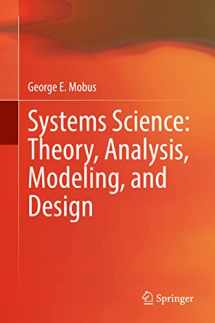
Systems Science: Theory, Analysis, Modeling, and Design
Book details
Summary
Description
This book describes a comprehensive approach to applying systems science formally to the deep analysis of a wide variety of complex systems. Detailed 'how-to' examples of the three phases (analysis-modeling-design) of systems science are applied to systems of various types (machines, organic (e.g. ecosystem), and supra-organic (e.g. business organizations and government). The complexity of the global system has reached proportions that seriously challenge our abilities to understand the consequences of our use of technology, modification of natural ecosystems, or even how to govern ourselves. For this reason, complex mathematics is eschewed when simpler structures will suffice, allowing the widest possible audience to apply and benefit from the available tools and concepts of systems science in their own work. The book shows, in detail, how to functionally and structurally deconstruct complex systems using a fundamental language of systems. It shows how to capture the discovered details in a structured knowledge base from which abstract models can be derived for simulation. The knowledge base is also shown to be a basis for generating system design specifications for human-built artifacts, or policy recommendations/policy mechanisms for socio-economic-ecological systems management. The book builds on principles and methods found in the authors' textbook Principles of Systems Science (co-authored with Michael Kalton), but without prerequisites. It will appeal to a broad audience that deals with complex systems every day, from design engineers to economic and ecological systems managers and policymakers.


We would LOVE it if you could help us and other readers by reviewing the book
Book review



